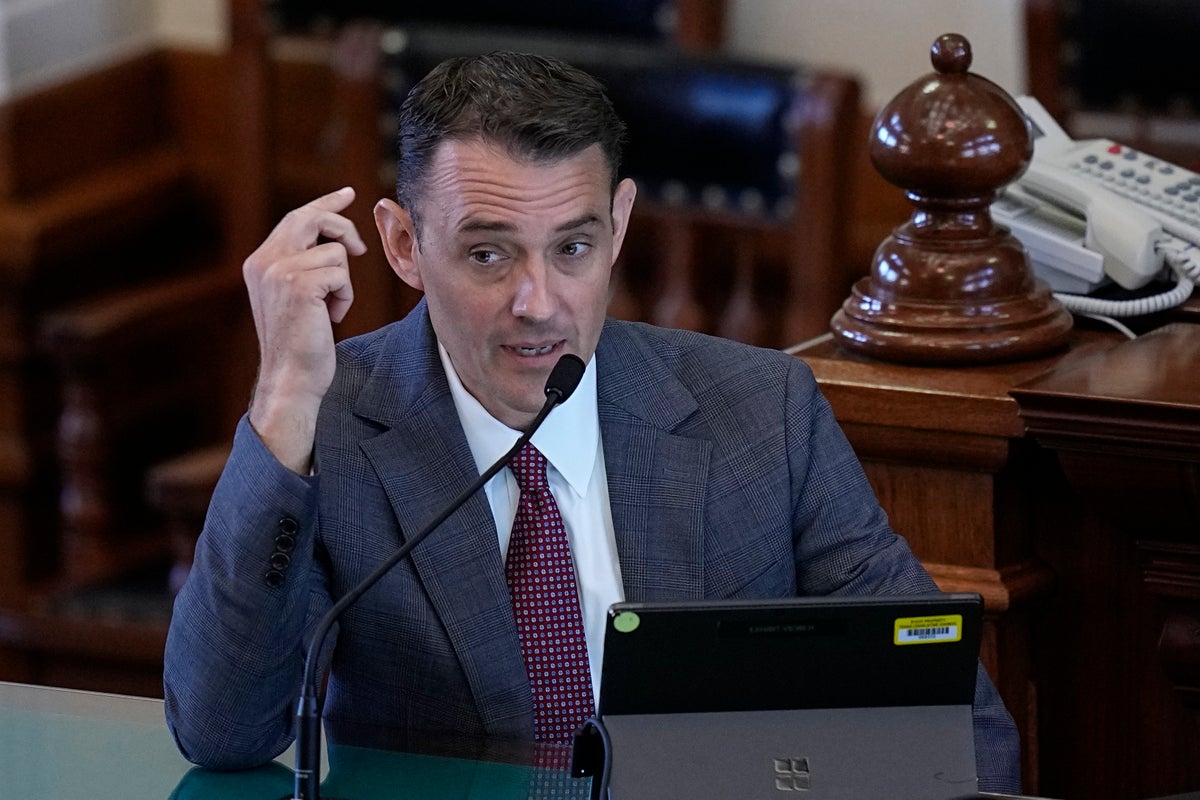
Texas Attorney General Ken Paxton has long denied corruption accusations that have dogged him for years. But as his impeachment trial gets underway, another defense is emerging: that fellow Republicans plotted to oust him.
His attorneys have so far presented no evidence in the trial, which continued Thursday, that Paxton was the victim of an attempt to replace him. But as former aides give testimony about how Paxton pressured them to help a political donor who was under FBI investigation, Paxton's attorneys have raised questions about lobbyists and a meeting at Gov. Greg Abbott’s office, and have brought up George P. Bush, who lost to Paxton in last year’s Republican primary.
“It was not a mutiny,” Ryan Bangert, one of Paxton’s former aides, testified Thursday about a group of deputies who reported their boss to the FBI in 2020. “We were protecting the interest of the state and protecting the interest of the attorney general and, in my view, signing our professional death warrant at the same time.”
The start of the trial is putting into view how lawyers for Paxton, who has been shadowed by criminal charges and an ongoing FBI investigating for years, intend to defend one of Texas' most powerful figures. Paxton has pleaded not guilty to the articles of impeachment, which center on accusations of bribery and abuse of office.
The waving at a broad conspiracy is an extension of how Paxton has spent months denouncing his impeachment by the Republican-controlled House in May as a politically driven attack by Democrats and rivals within his own party. It is a message amplified by his supporters on the far right, who for years have cheered on Paxton as he elevated his national profile by trying to help former President Donald Trump baselessly overturn the 2020 election and through lawsuits against President Joe Biden's administration.
The people Paxton needs to ultimately convince are Republican senators serving as the jury. A two-thirds majority — or 21 senators — is required for conviction, meaning that if all 12 Democrats vote against Paxton, at least nine Republicans would have to join them.
As the trial began this week, six Republicans voted repeatedly in favor of dismissing the articles of impeachment. Paxton could be barred from office if he is convicted.
He has not been in the Texas Senate for any of the testimony. He is not required to attend all of the proceedings and cannot be compelled to testify.
At the center of the case are accusations that Texas’ top lawyer wrongfully used his power to help Austin real estate developer Nate Paul, a political supporter who was indicted this summer on charges of making false statements to banks.
Jeff Mateer, who was Paxton's former second-in-command, testified Wednesday that after going to the FBI on Sept. 30, 2020, he and other deputies had a meeting with the governor's office. On cross-examination, Paxton attorney Tony Buzbee asked Mateer about whether he had communicated with Bush, the former Texas land commissioner who unsuccessfully challenged Paxton in last year's Republican primary.
He also asked whether Mateer was staging “a coup." Mateer replied, “Absolutely not.”
Abbott spokeswoman Renae Eze said Paxton's aides asked to meet with “senior staff” at the governor's office and that the deputies were told to talk to Paxton. Eze said in an email that Abbott's office was not part of any coordinated effort against Paxton and that the deputies did not say what they wanted to discuss.
Bush, who had been the only member of the Bush dynasty still in elected office before losing to Paxton, filed to renew his law license the day after Mateer and other aides reported their boss to the FBI. Buzbee provided no evidence that Bush had communicated with any of Paxton's accusers, and Mateer said he’s never spoken to Bush.
“You ever hear that old saying, ’There are no coincidences in Austin?” Buzbee asked. Mateer replied that he hadn’t.
Spokespersons for Bush did not immediately return messages seeking comment. He is on a list of more than 100 potential witnesses in the trial.
Santosh Aravind, an Austin attorney who has been following the case, said those vague allusions to a broad conspiracy would not usually be persuasive in a regular trial.
“But I think he's speaking to a different audience," Aravind said. “He's speaking to a handful of Republican senators.”







